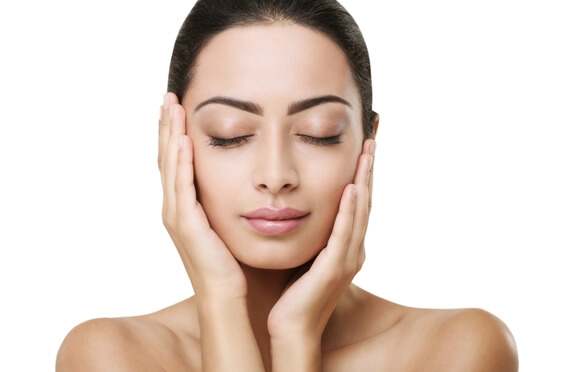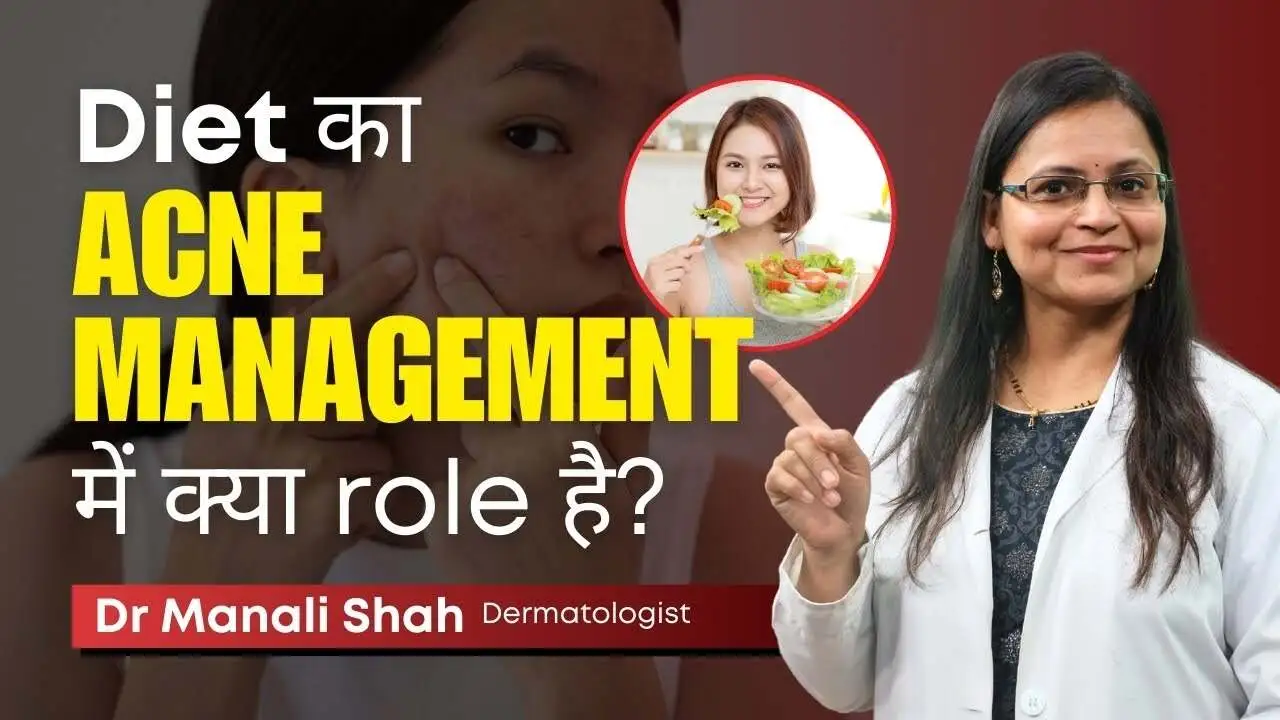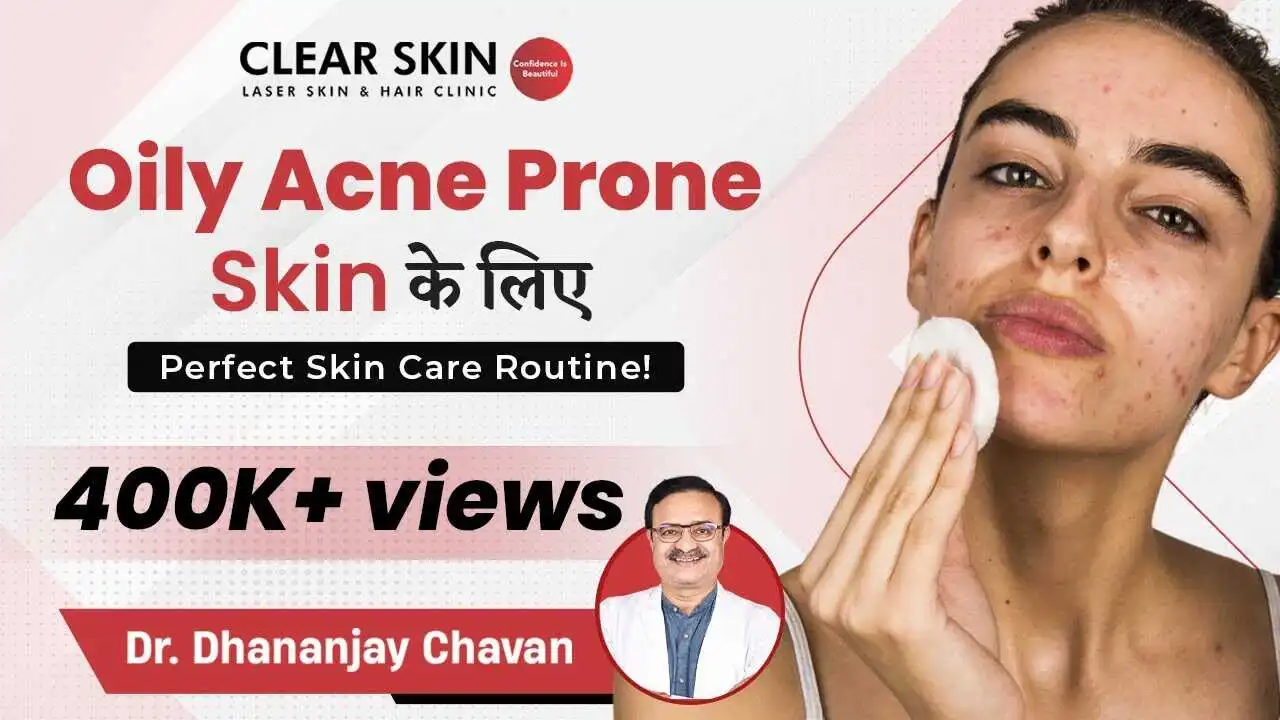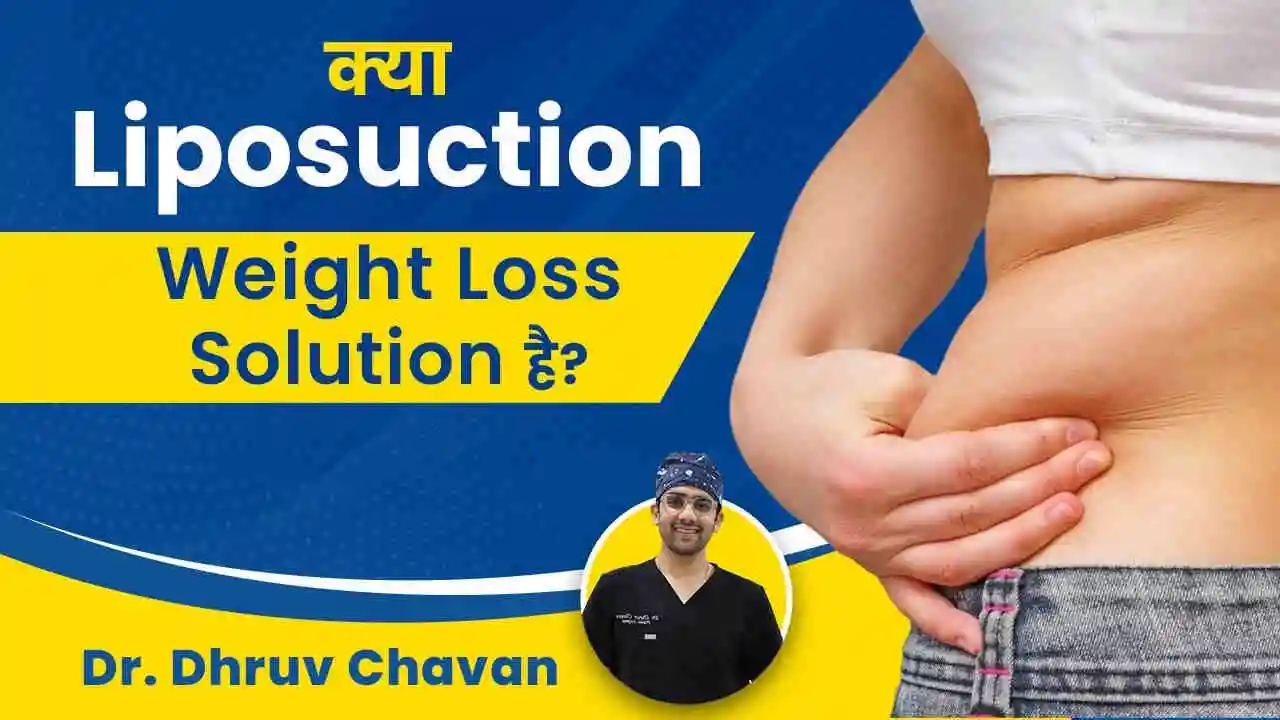Acne Treatment in Pune
Acne is a chronic inflammatory disease of the pilosebaceous unit, a problem that plagues us all in our teens. Many teenagers complain of acne problems during puberty though it is not unusual for women in their mid-to-late 20s to suffer from the same. Those seeking acne treatment complain of myriad problems including
- Red bumps or pimples on the skin
- Clogged pores are also known as blackheads or whiteheads – Pustules or bumps containing pus
- Deep pimples and boils of cystic acne also called cysts
In most cases, acne resolves on its own or through a combination of organic or over-the-counter medications. However, in some individuals, the skin is highly sensitive and prone to acne leading to recurring acne that may cause scarring or infections. If you suffer from a more serious case of recurring acne, you need to consult a dermatologist for a concrete solution and treatment protocol.
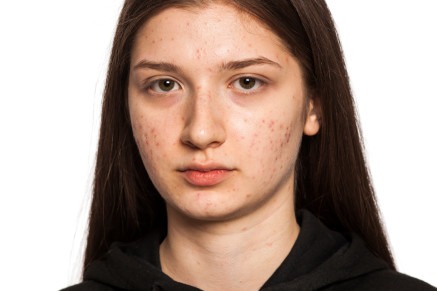
Signs and Symptoms of Acne
Causes of Pimples and Acne
Different Methods of Acne Treatment
Topical Medications for Acne
Medical Procedures for Acne Treatment
How much will Acne Treatment Cost in Pune?
Why choose Clear Skin?
Signs and Symptoms of Acne
Acne may cause whiteheads which occur due to closed clogged pores of the skin.
The other common symptom of acne is the appearance of blackheads on the skin, which are caused by open clogged pores.
The appearance of small, red bumps is one of the common pimple symptoms.
Pimples, which are papules with pus, are among the most prominent signs of acne.
Acne may also lead to painful lumps under the skin in the form of nodules or cystic lesions.
Non-inflamed and inflamed blemishes are also a symptom of acne.
There are two types of acne, inflamed and non-inflamed. The symptoms of non-inflamed acne include bumps and an uneven skin texture. This type of acne also causes blackheads, milia, closed comedones, and microcomedones. The signs of inflamed acne included red swollen pimples. This type of acne also causes papules and pustules.
Causes of Pimples and Acne
One of the main causes of pimples on the face is the generation of excess sebum (oil).
Hair follicles get clogged by oil and dead skin cells, leading to acne.
Bacteria can cause acne and pimples.
Hormonal changes during puberty and midlife can lead to acne breakouts.
What are the causes of pimples on the cheeks and chin? Bacteria that spread due to objects like pillow covers can cause pimples on the cheeks and chin. Certain skin care products may also cause acne on the face.
Environmental pollution is another leading cause of acne and pimples.
Medicines with ingredients like corticosteroids, lithium, and testosterone can result in acne and pimples.
Excess intake of carbohydrate-rich foods can trigger acne and pimples.
Stress is a leading cause of acne.
Pimples treatment includes home remedies like cleansing the affected skin, protecting the skin from sunlight, and avoiding picking at the pimples. OTC medicines like gels and creams can also help in curing acne and pimples. Topical retinoids and antibiotics are some other good treatments for pimples. However, how to treat acne can be answered best by an expert in the field. So based on the severity of your skin condition, it is advisable to consult a dermatologist in order to seek the best pimples treatment and restore your skin health.
Different Methods of Acne Treatment
Oral antibiotics
Topical treatments in the form of creams, lotions, or face washes
Medical procedures like chemical peels, lasers, and light therapies
These treatments can be prescribed individually or combined can help
Control further acne growth
Avoid scars or marks on the skin from acne growth
Make scars less noticeable
Topical Medications for Acne
In case of acne or pimple treatment, dermatologists prescribe topical acne agents including cream, gel, lotion, and other face washes that are used on the skin. These topical medications help to reduce the oiliness of skin by reducing sebum production, then reduce the formation of blackheads and whiteheads also inflammation of acne, and promote the skin to peel off.
Topical treatments: Who should try this
Dermatologists often recommend topical medications to individuals who have signs of acne or suffer from mild to severe acne. These treatment options help in easing out their symptoms and prevent scarring and prevent the growth of acne-causing bacteria i.e. Propionibacterium acnes. Additionally, they also keep pores clear and reduce the number of comedones. In the case of mild to moderate acne when there is 2-3 occasional acne then these can be used as spot acne treatment.
The common topical medications used to treat acne are:
Antibiotics & Antibacterials
Topical antibiotics are mostly available as creams or gels for direct application on the skin. These antibiotic creams reduce red, painful, and pus-containing acne growth by killing the bacteria on the skin and reducing inflammation. They can be prescribed with other topical antiacne creams such as benzoyl peroxide, retinoic acids, azelaic acids, etc. which further helps in reducing redness and pigmentation. The commonly advised antibiotics include clindamycin and erythromycin. Both these antibiotics are available as lotions, gels, and saturated pads.
Dapsone
This medication is found in gel form and is suggested as one of the best acne treatments for all age groups according to recent updates. Dapsone gel 5% is a first-line drug and effective in treating mild to moderately severe acne. This gel is applied once or twice every day on the skin to slow down bacterial growth and reduce inflammation. Topical dapsone 5% gel can be used safely and effectively for long-term acne maintenance treatment without the risk of developing antibiotic resistance. Studies show that it takes up to 12 weeks to get proper results and can be combined with other topical or oral anti-acne medicine.
Retinoids
These are recommended in patients with mild to moderate acne problems. Retinoids contain compounds like adapalene and tretinoin are available as gels, ointments, creams, or foams for application on the skin to prevent blackheads and whiteheads. The medicinal effect of the cream pushes out the dead skin cells, thus, giving way to new cell formation. The new cells multiply to push out the dead cells and excess oil from blocked pores, thus, treating the acne problem.
Oral Medications
Though topical medications available as acne cream treatment are the first line of defense against common acne problems, to provide long-term improvement dermatologists prefer to prescribe oral medications in case of persisting acne problems. The commonly prescribed oral medications include the group of tetracyclines (minocycline, doxycycline) and macrolides (erythromycin, azithromycin).
Oral antibiotics: Who should try this
Oral antibiotics are primarily suggested to individuals who suffer from inflamed, pustular, or nodulocystic acne or when your acne is moderate to severe and can leave scars. Best suited for mild acne (in the form of topical medication), one can also intake oral antibiotics as capsules/tablets when you suffer from moderate or severe acne. Experts recommend taking antibiotics in high doses, but it’s vital to reduce the quantity once your acne starts getting better.
Combined Oral Contraceptives
Combined contraceptives, or those that contain both progestin and estrogen, are usually prescribed to adolescents and adult women. Usually, these medicines take a longer time to act, so doctors prescribe them with other acne medications for quick results.
The medicinal effect of these pills reduces androgen circulation, thus, having an alleviating effect on sebum production. The combination of progestin and estrogen acts as effective protection against acne growth.
Spironolactone
This drug is best recommended for women and teenage girls afflicted with lingering acne problems despite previous treatments with topical and combined oral contraceptive medications. This anti-androgen agent blocks the impact of androgen hormone on the sebaceous glands to reduce oil production and thus control acne growth.
Isotretinoin
Isotretinoin is one of the drugs that target all primary causal factors of acne; however, it may cause adverse effects. Oral isotretinoin is highly effective but can only be prescribed by dermatologists. It is mainly preferred in moderate to severe grade acne but can be given in mild grade acne when it is recurrent. It is strictly contraindicated in women who are trying to start a family or pregnant women.
Medical Procedures for Acne Treatment
In certain cases, acne cream treatments or oral medications, or a combination of both fail to deliver the desired results to treat acne problems. In such cases, more advanced medical procedures are prescribed to resolve acne problems.
Medical procedures: Who should try this
Medical procedures like chemical peels and laser therapies are some of the best acne treatment options suitable for individuals suffering from acne with blackheads and whiteheads or associated pigmentation of old acne. Laser therapies help to treat deep-seated acne, inflammatory, active acne, and acne scarring. As per dermatologists, light therapy (blue light/red light or phototherapy) is popular since it’s safe for people and is relatively free of side effects.
Intralesional injections
This is evaluated for its efficacy and established treatment modality mostly prescribed for those suffering from severe acne associated with nodules and cysts. Steroid solution is injected into the nodule to target clogged pores which helps to resolve nodules or cysts fast. An intralesional steroid injection involves a corticosteroid such as triamcinolone acetonide injected directly into a lesion on or immediately below the skin.
Chemical peels
This is an exfoliation technique to get rid of blackheads, whiteheads, and pus-filled pimples by using chemical peels such as salicylic acid or concentrated glycolic acid derived from sugarcane. The peels act to strip away the upper dead layers on the skin surface. Removing the superficial layers stimulates new skin growth and eliminates clogging problems in pores.
Laser or light-based therapies
This acne laser treatment reduces bacterial growth, inflammation, skin redness, and subsequent scarring and skin discoloration. Light therapies used for dermatological treatment target the acne-causing bacteria in the affected area using handheld devices or large panels fitted with long, thin light bulbs to emit light and reduce inflammation.
The ideal light source and parameters are decided by the dermatologist depending on the severity of the acne problem. These acne laser treatment for pimples helps to avoid bacterial multiplication, reduces inflammation, promotes healing of acne and reduces chances of scar formation.
Extraction Treatment
Dermatologists strictly advise against squeezing the pus out from the pimple or trying to remove the blemish by nails. However, when performed with the use of sterilized equipment it can prevent acne growth. The dermatologists take care to see that no scarring is involved and prescribe added treatment options to prevent further acne breakout.
How much will Acne Treatment Cost in Pune?
ClearSkin Pune promises the best acne treatment in Pune at affordable costs due to its effective and innovative treatment procedures that reduce acne in a faster way and also give long-term improvement.
Patients suffering from lingering acne problems can consult Clear skin to avail services of the best doctors in Pune for acne treatment. Procedures such as laser treatment for pimples, chemical peels, light therapy and more can be availed at affordable and accessible price points.
Why choose Clear Skin?
Over-the-counter treatments for acne fail to address the root cause of it which is your skin health. Unless a proper diagnosis and tailored treatment plan are in place, your acne will keep recurring. We help you understand what works for your skin and do a comprehensive investigation of your skin problems before commencing treatment. Our aesthetic solutions help you create a great first impression by getting your acne under control.
Book Appointment
Error: Contact form not found.
Treatment
Acne & Pimple

Your skin health is the root cause of your frequent acne. Unless a proper diagnosis and targeted treatment plan are in place, your acne will keep recurring. We help you figure out what works for your skin and do a comprehensive investigation of your skin problems before commencing treatment.
It works,
Says our Patients

Archana Kudale
"The doctors were friendly and helpful during consultation. I am taking treatment here for severe acne and the outcome is really amazing...the procedure is bit time taking"

Archana Kudale
"The doctors were friendly and helpful during consultation. I am taking treatment here for severe acne and the outcome is really amazing...the procedure is bit time taking"

Archana Kudale
"The doctors were friendly and helpful during consultation. I am taking treatment here for severe acne and the outcome is really amazing...the procedure is bit time taking"

Archana Kudale
"The doctors were friendly and helpful during consultation. I am taking treatment here for severe acne and the outcome is really amazing...the procedure is bit time taking"

Archana Kudale
"The doctors were friendly and helpful during consultation. I am taking treatment here for severe acne and the outcome is really amazing...the procedure is bit time taking"

Archana Kudale
"The doctors were friendly and helpful during consultation. I am taking treatment here for severe acne and the outcome is really amazing...the procedure is bit time taking"
Treatment Timeline





Symptoms



Why Choose Us?
- Experienced team of doctors and staff
- Years of experience
- Treated 1L+ patients in Maharashtra
- Patients satisfaction is top priority
- Use advanced technologies
- Expertise in treatments of various skin conditions etc
